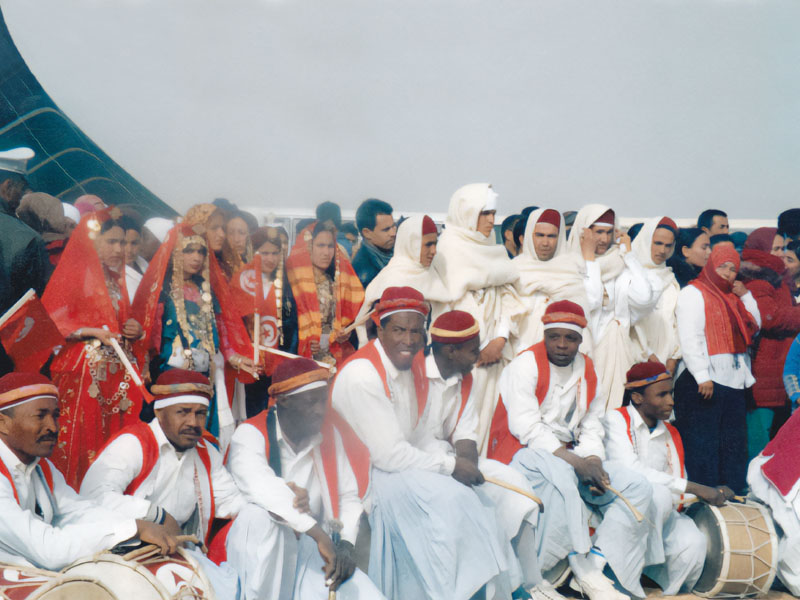ARRASAH WEDDING RITUALS IN AL HAWAYA, TUNISIA
Issue 21

In many tribal areas, wedding celebrations reflect the degrees to which the tribe is organized and liberal; this paper uses the example of weddings in Al Hawaya region, and attempts to focus on the community’s laws and their social and cultural functions.
Among other celebrations, Bani Khadash weddings in Al Hawaya reflect tribal identity and draw attention to the cultural roots of the tribe and their history. Many of the social and symbolic cultural values are reflected in the tribe’s celebrations, particularly weddings.
‘Arrasah’ is when the men gather around the bridegroom before, during and after the wedding to take care of him and to organize the event. The rituals are very well organized.
We find the phenomena of Arrasah in Northern African coastal and interior areas. Most Libyan, Tunisian, Algerian, Moroccan and Mauritanian men still remember their Arrasah because it reminds them of their youths. The rituals of Arrasah reflect the young bridegroom’s status in his community.
Each area has norms and rituals that stem from its cultural and social identities. After introducing Al Hawaya region and describing its geography, history and culture, the paper aims to identify features of Arrasah that are specific to the region.
‘Al Sultan’ and ‘Al Hafsiyyah’ are terms that are frequently used during Arrasah; these terms reference the Hafsiyyah dynasty, which ended when the Ottomans reached Tunis in 1574 AD.
There are indications that the phenomenon is as old as the Hafsiyyah dynasty, especially because it occurs in most Northern African countries and we find very similar rituals and terms used during Arrasah in Darj in Libya and in Tata in Morocco. In other regions of Tunisia, such as Nafzawah, the Arrasah rituals are almost identical.
The originally Bedouin Bani Khadash tribe are no longer nomadic, and many of their traditions have changed. Arrasah has also changed dramatically; from rituals including folksongs, ululations, incense and henna, only cupping and a few other minor traces remain to remind the people of their traditions.
Hachemi Hussein
Tunisia







































































